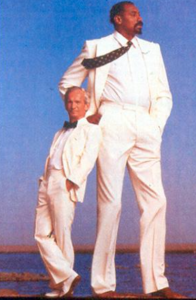Daniel was struggling with his frustrating marriage. He loved his wife, but was so disappointed in her. She did not fold his clothes in a way that limited wrinkles. Her cooking skills consisted of the same three meals. She never wanted to go out and dance or listen to live music, like they had in their dating years. “Its like she just doesn’t want to be a good wife at all.”

Disappointment is a Part of Marriage
It is so frustrating to be continually disappointed. All spouses experience disappointment at some time during their marriage.
From early preschool days, boys and girls begin developing expectations of marriage. What we experience in the home we grow up in, what we see in our friends homes, our experiences those we date, our family and friend’s relational experiences, our culture, our beliefs and world view, and our experience of our spouse from our earliest interaction all impact what we expect in our marriage.
Is it any wonder that two people who love each other would have such different ideas about how to love the other?
Why Our Expectations are Dashed
- You expect your spouse to know your expectations without communicating them. One of the most challenging issue in the early years of marriage is that we both have expectations about what the marriage will look like. We errantly believe that our idea about how the marriage will look is “common sense” and that “everybody ought to know that.”
There are no legitimate mind readers! Your spouse will only know what your expectations are if you communicate them. You will not know your spouse’s expectations unless you help them share them and listen well.
- You expect your spouse to be someone they are not. You may have heard it said, or said it yourself, that “he married his mother” or “she married her father’. We tend to see some of our spouse’s traits through the lens of how our parents did relationships. Sometimes we put expectations from movies or culture onto our spouse. But your spouse is different, unique, and wonderful in their own right.
NBA great, Wilt Chamberlain, who is the only basketball player to ever score 100 points in a single game, stood 7 feet, 1 inch tall, and weighed 275 pounds. Jockey legend, William Lee “Bill” Shoemaker, who held the world record for total professional jockey victories for 29 years, barley reached 100 pounds and stood only 4 feet, 11 inches tall.
No one would have expected Wilt to be a jockey, or Bill to try out for the NBA. They are both uniquely gifted and wonderfully made. They are their best when they live out what they were built for.
God made your spouse to be your spouse. Not to be someone else or someone different. And your spouse will be the best spouse for you when they are truly themselves. Instead of helping them become someone they are not, help how God made them brightly shine.
- You expect your spouse to change immediately. If you have been doing something the same way for the past twenty years, unless you experience brain trauma or miraculous intervention, you will not be able to do it differently all at once. Sometimes we expect our spouse to begin automatically and immediately meeting our expectations.
A guy who always had his own bathroom and never learned to put the seat down will not being immediately and automatically putting the seat down, no matter how much he loves his wife. It will take some time. The change process takes time and energy. So communicate your expectations and keep communication open as the efforts to change happens.
- You expect your spouse to want to please you in all things. It is an unrealistic expectation for your spouse to give up all of their “favorites” to yield to your preferences. If you dislike Italian food and your spouse dislikes Mexican food, you will be greatly disappointed if you expect that you will never dine at Italian and Mexican food restaurants. How your spouse dresses, wears their hair, enjoys music, etc. are all matters of personal preference that couples should be able to discuss together.
Just because your spouse does not want to please you in all of your preferences does not mean that they do not love you. They are an individual just as you are and have every right to their own personal preferences within the boundaries of the marriage vows.
One study found that when one spouse gets their way on almost all matters the marriage will end in divorce over 80% of the time. The greatest gift you can give your spouse is freedom to express their preferences and a yielding of your preferences to theirs with equality.
What do you have to say?
We love to hear from readers. Do you agree that every couple experiences dashed expectations in their marriage? What would you add to the list of of reasons why expectations are so easily dashed? How important is it for couples to know that this is common and have some ideas about what to do about it? If you tried any of these suggestions, how did it work out for you?
This article was written by Roy and Devra Wooten, authors of “The Secret to a Lifetime Love”. Learn more at www.LifeTogetherForever.com © Roy and Devra Wooten 2016. All Rights Reserved. You may replicate this article as long as it is provided free to recipients and includes appropriate attribution. Written permission for other use may be obtained at [email protected].

